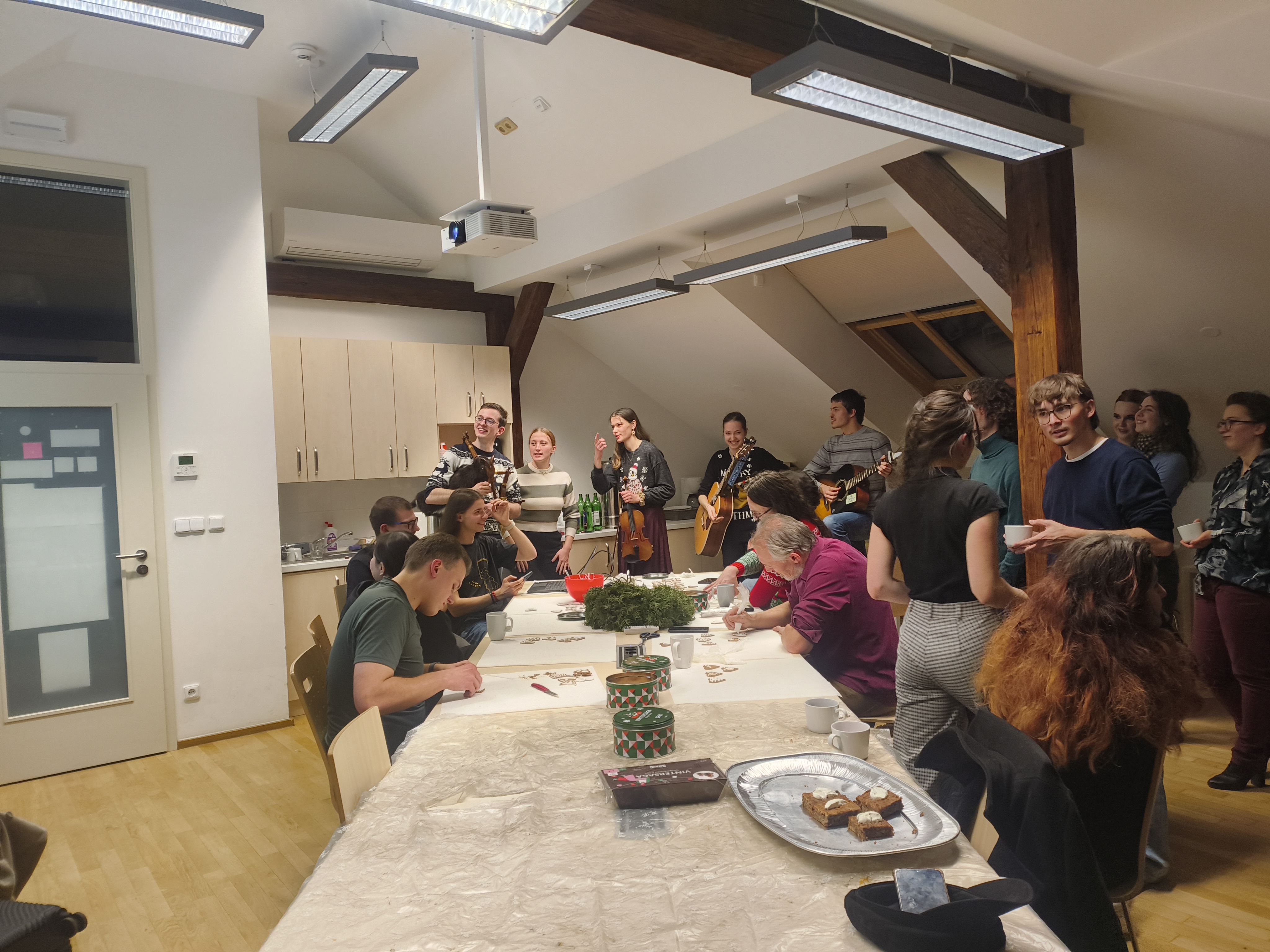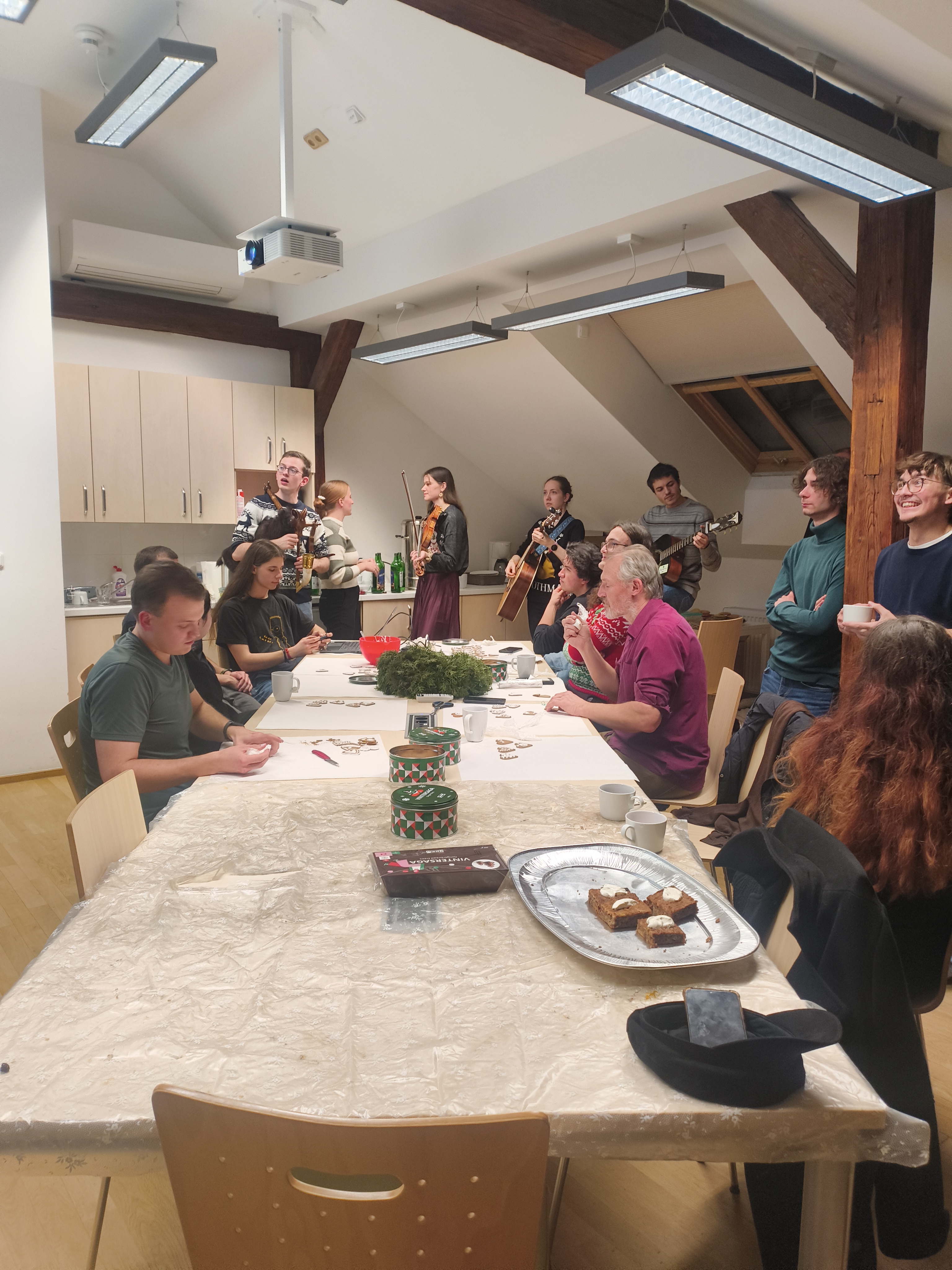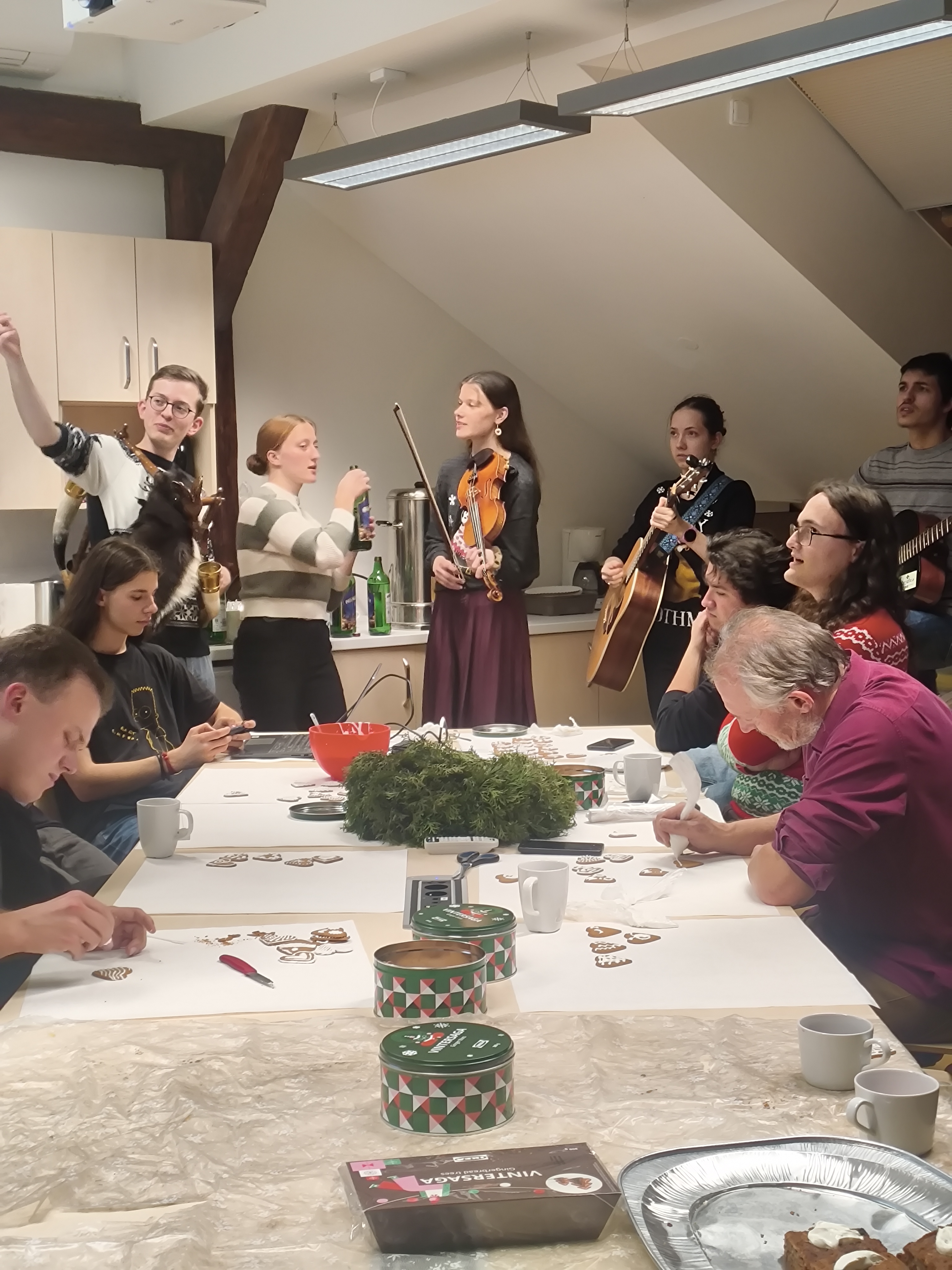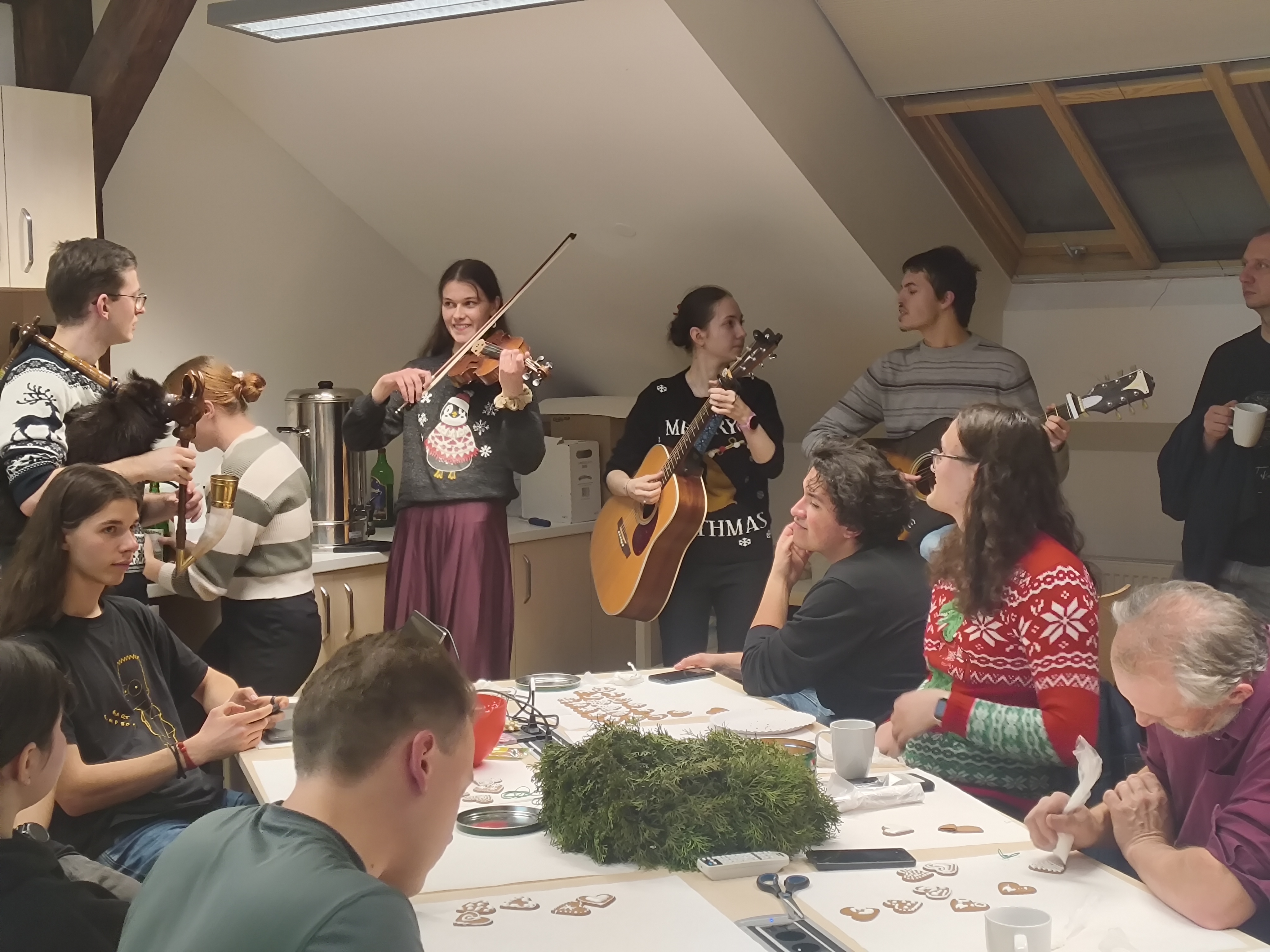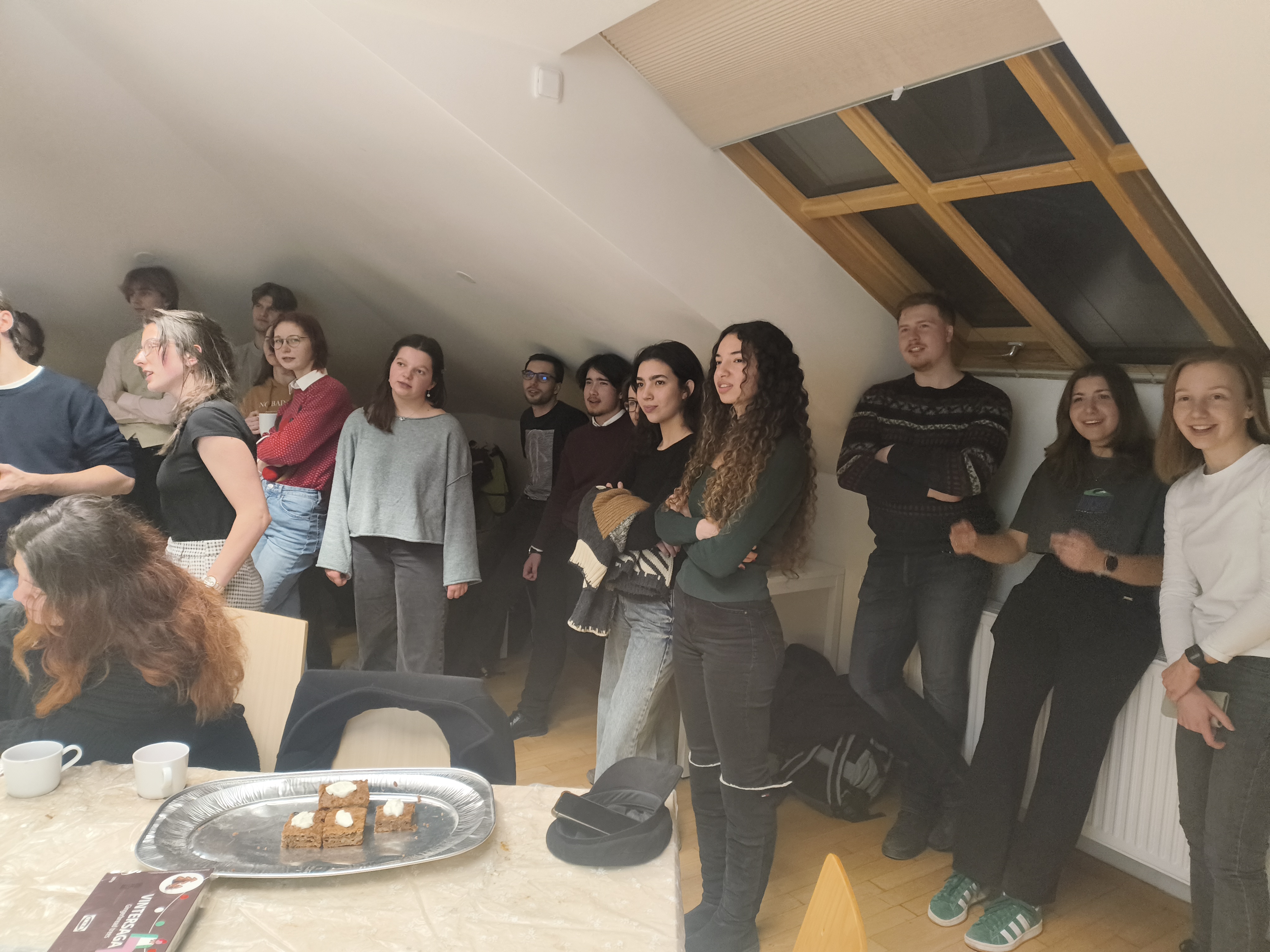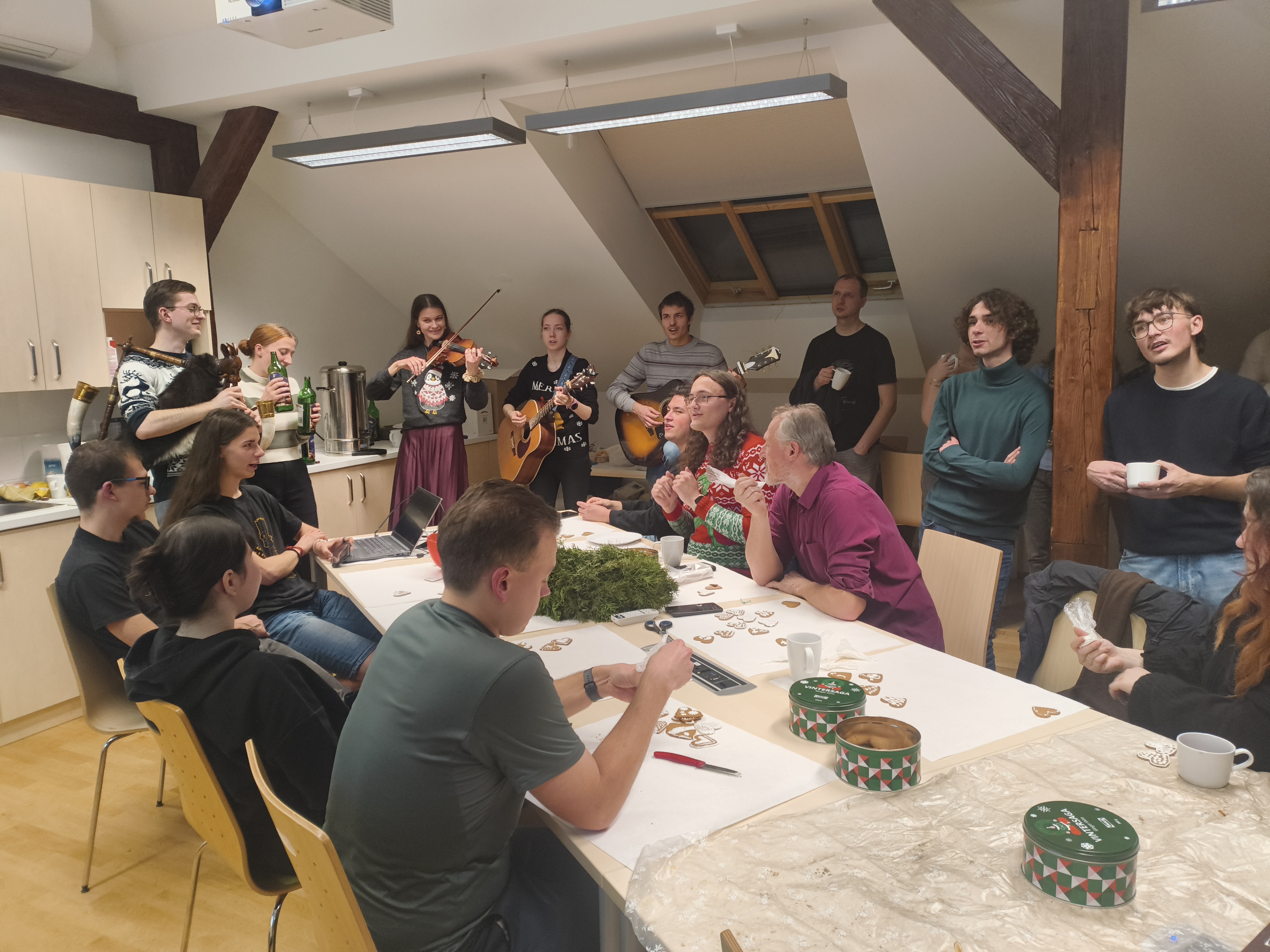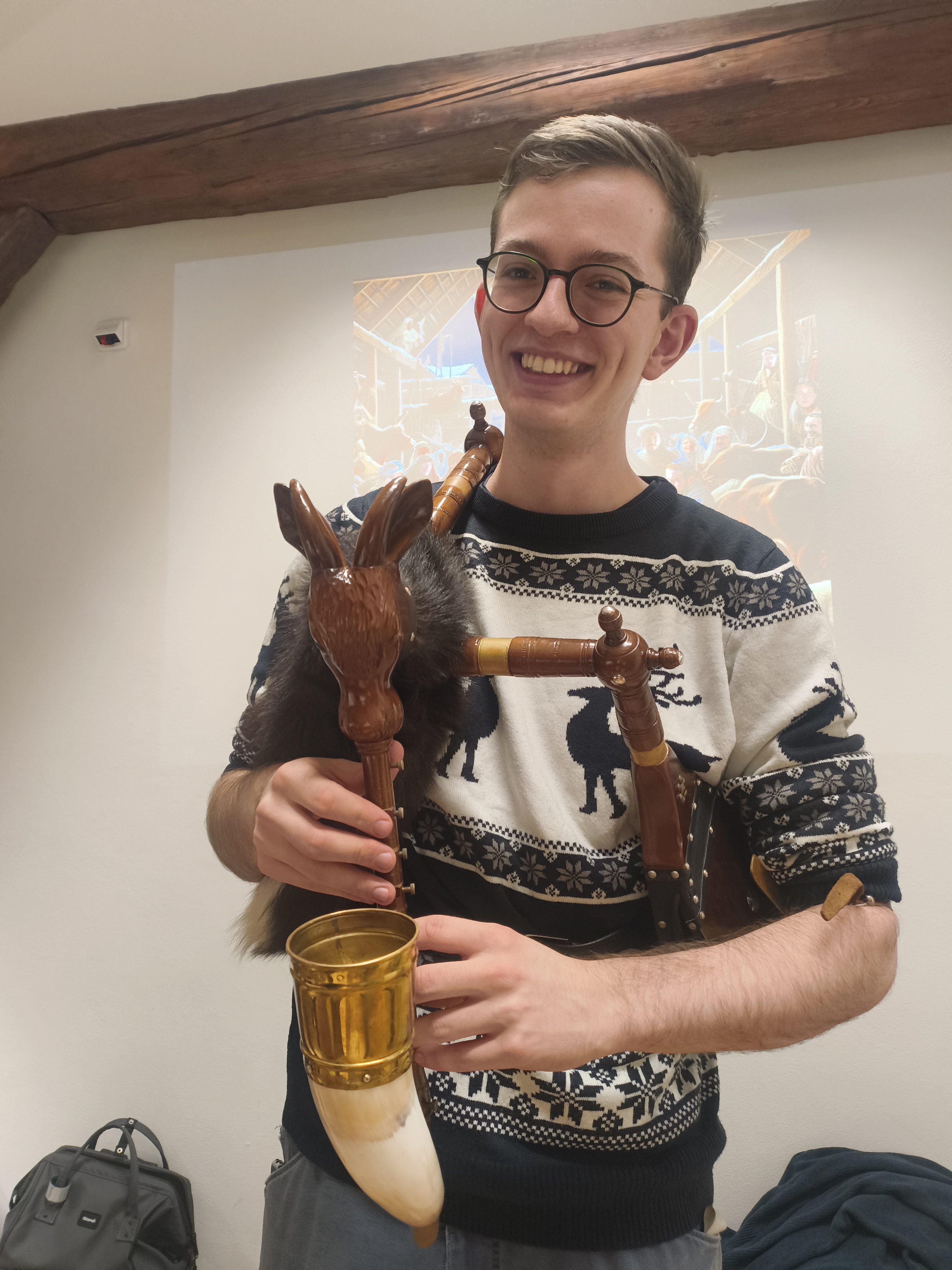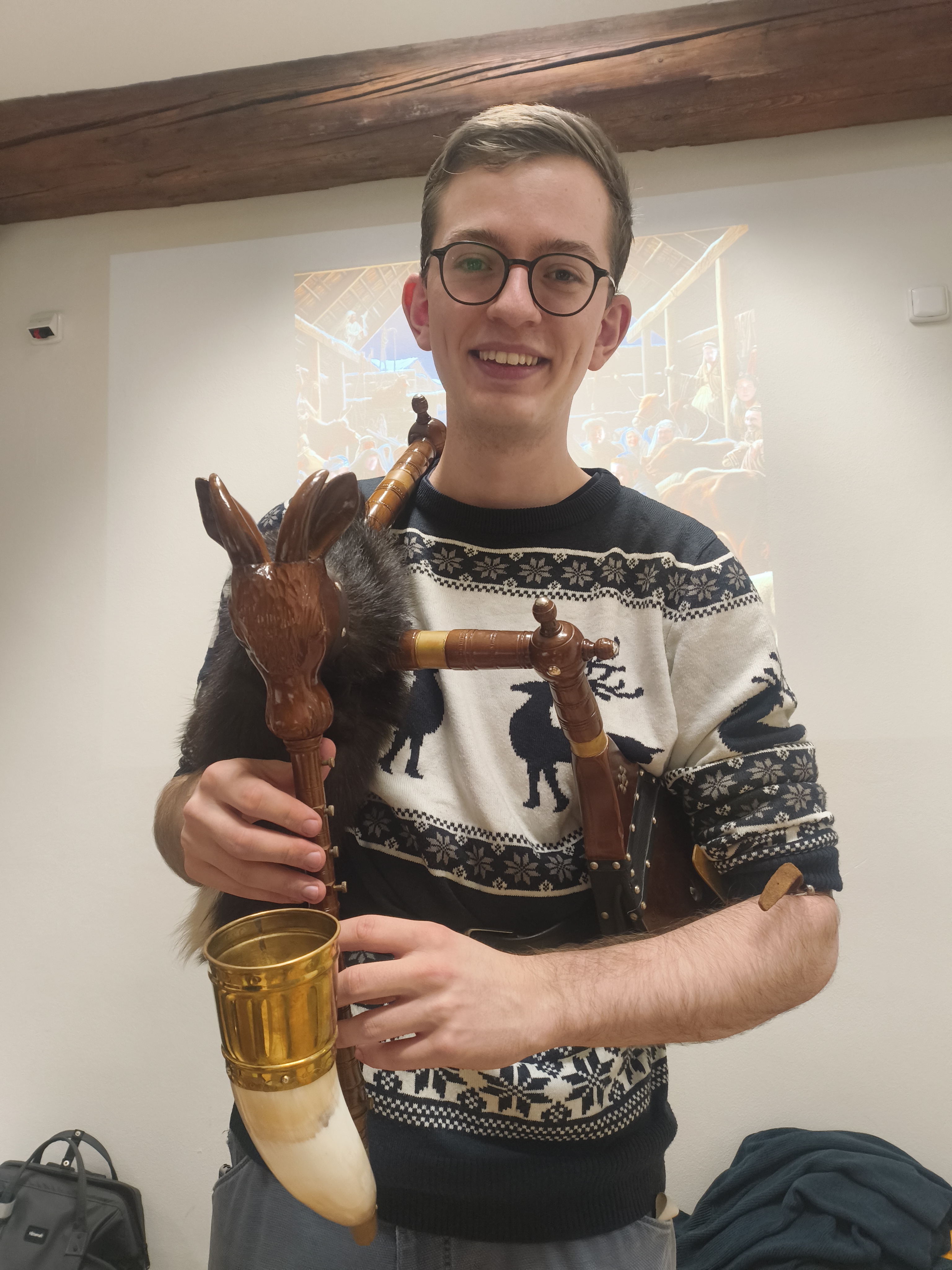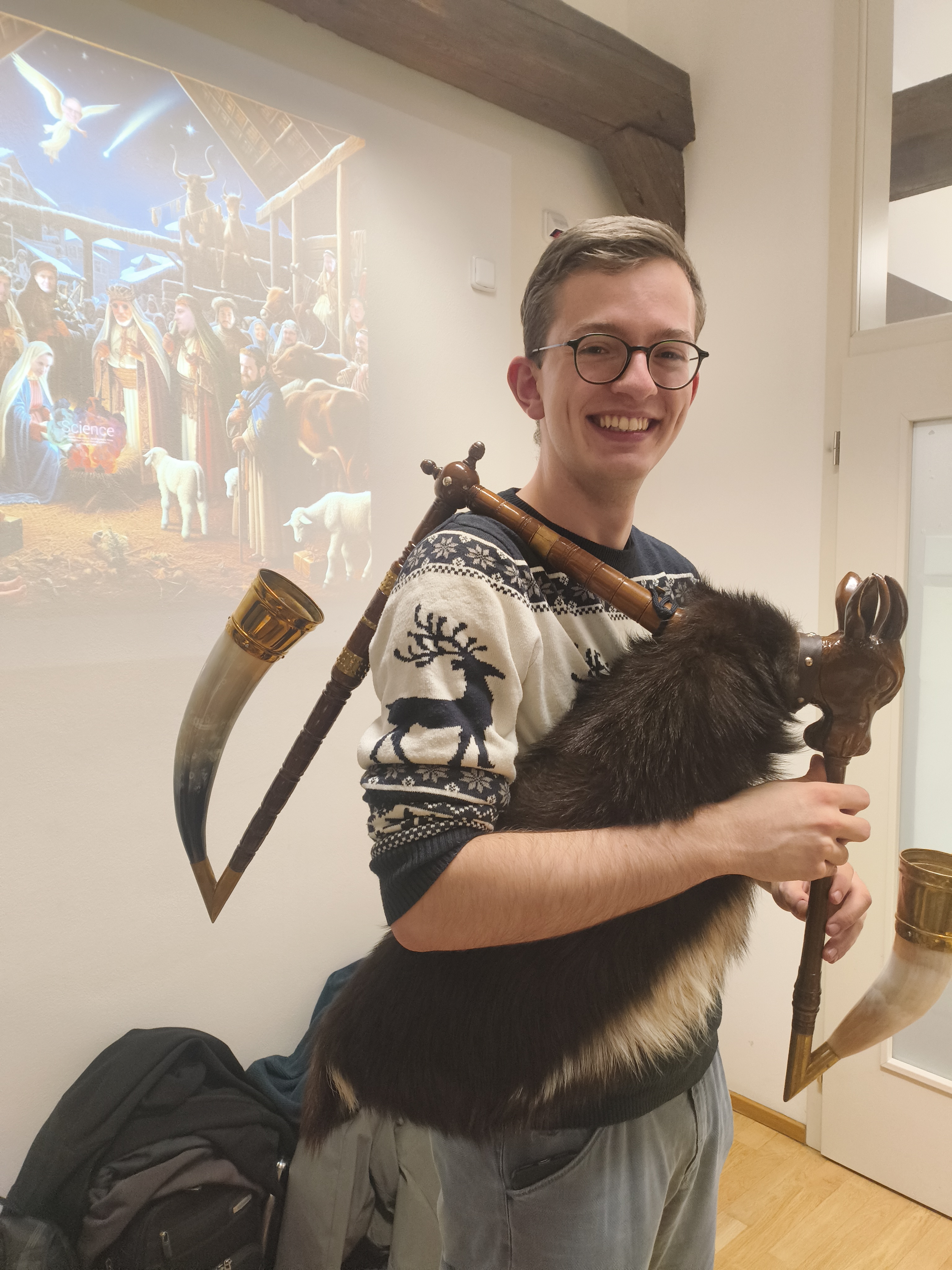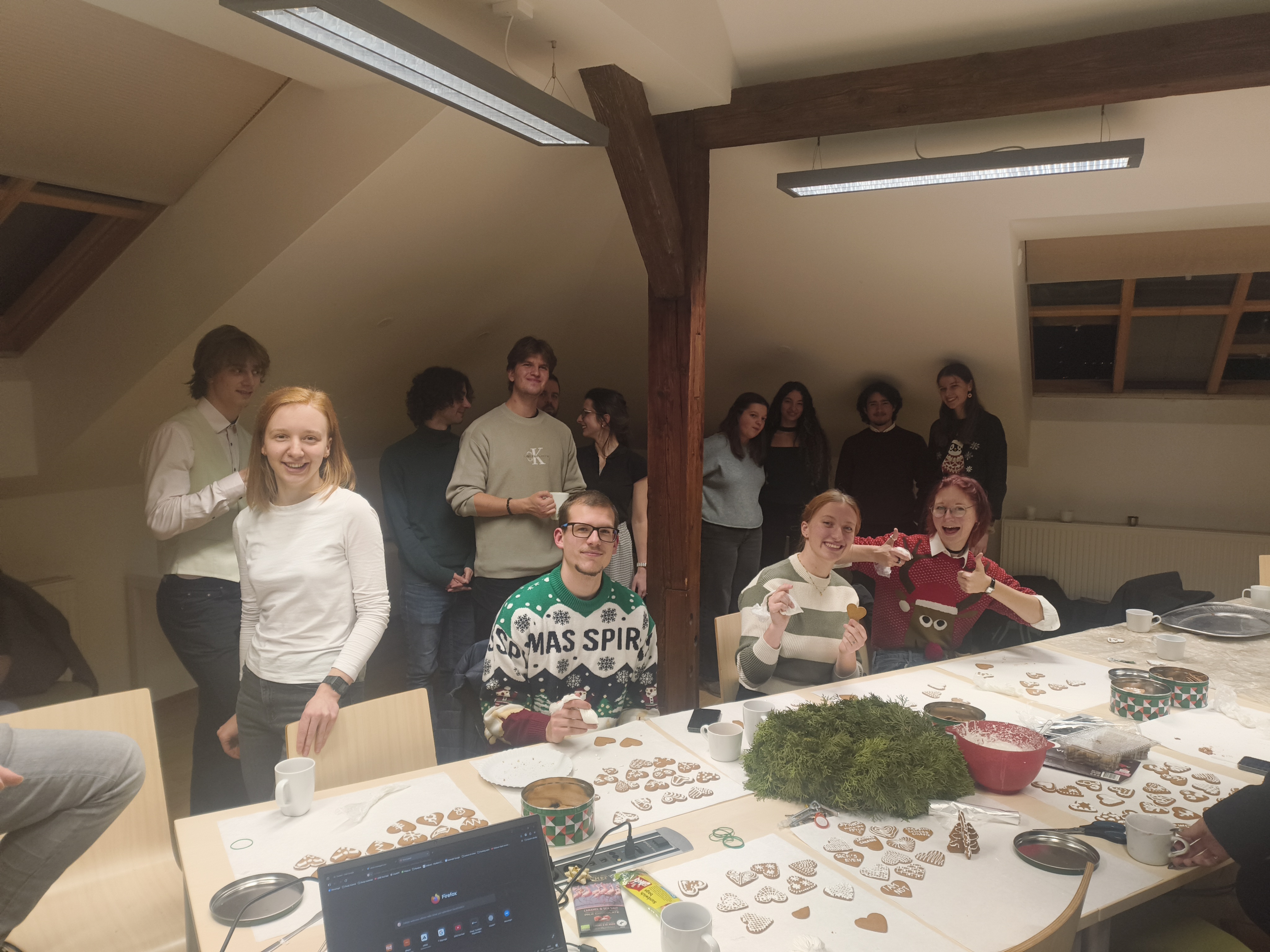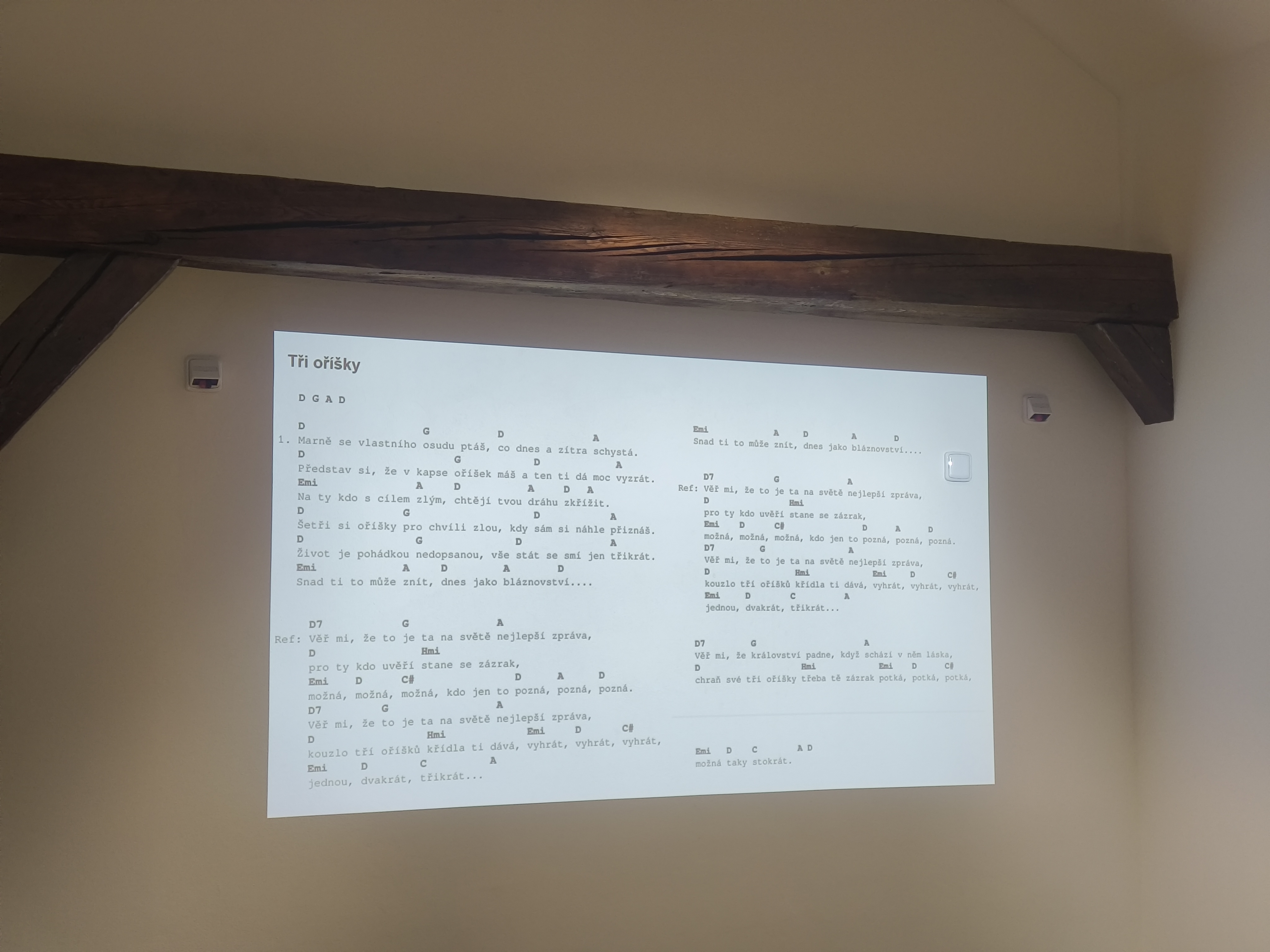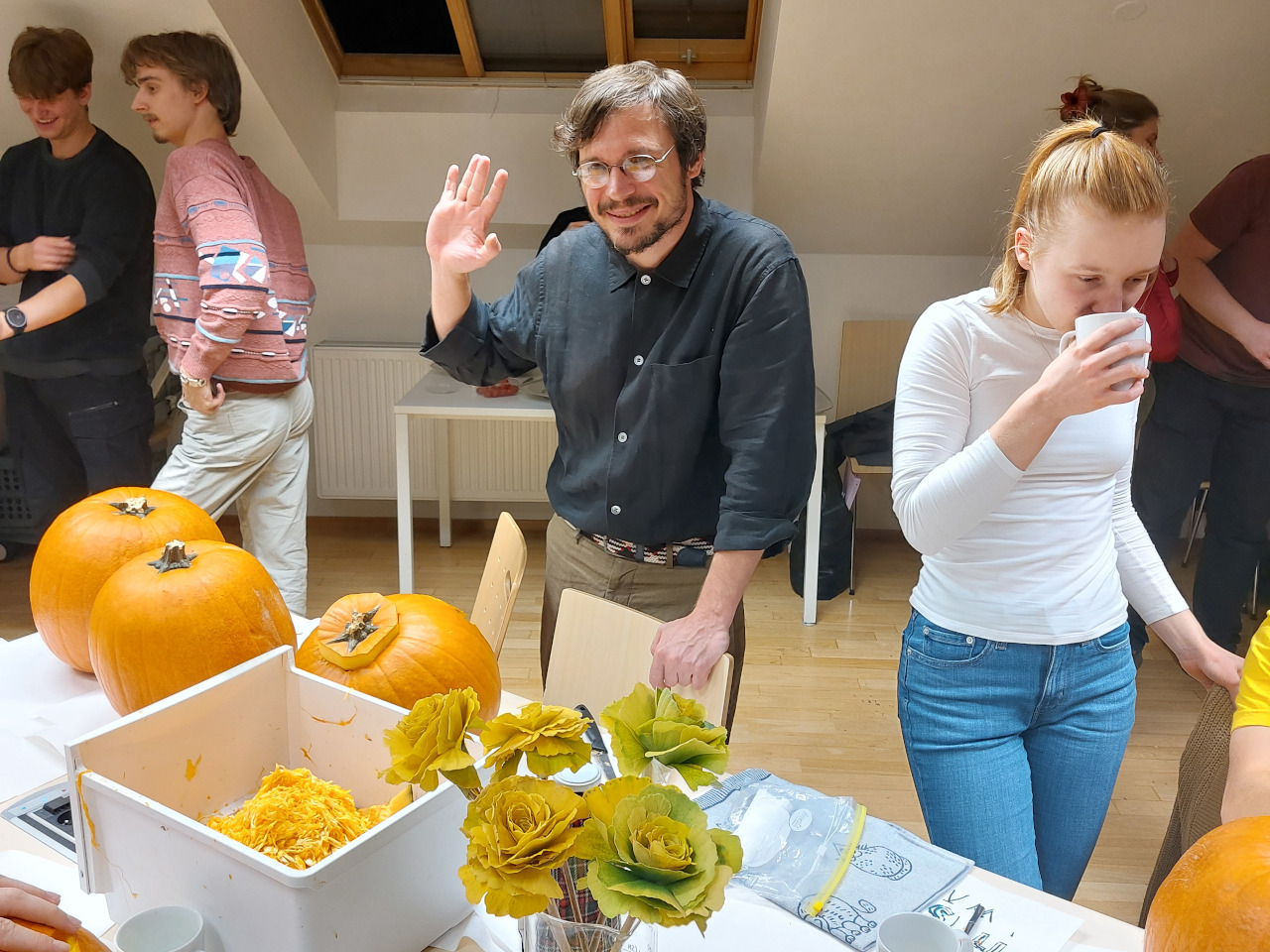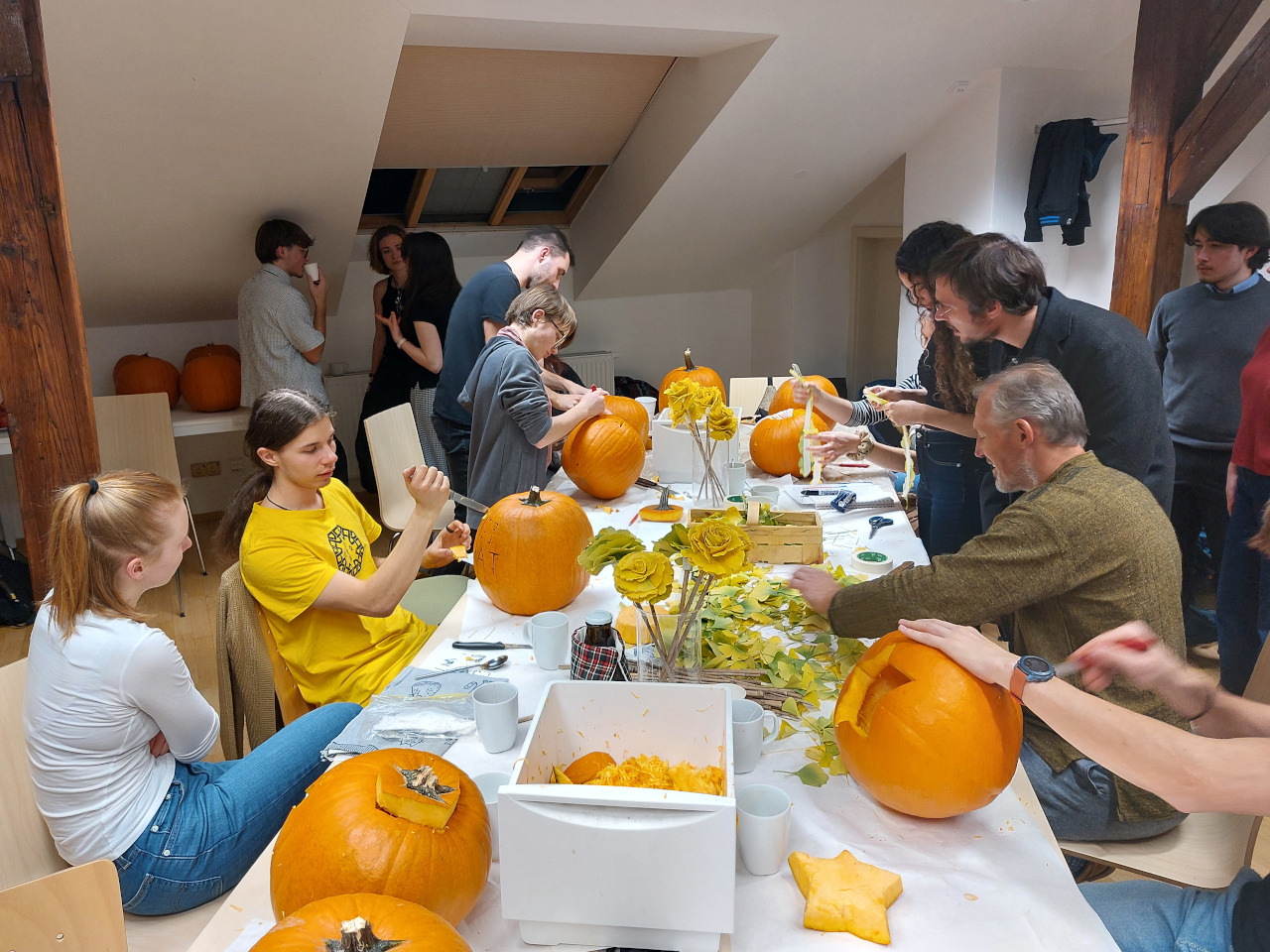
Events
StudyScience Halloween Party (Click to view all) (29 Oct 2025)
StudyScience Easter party (15 Apr 2025)
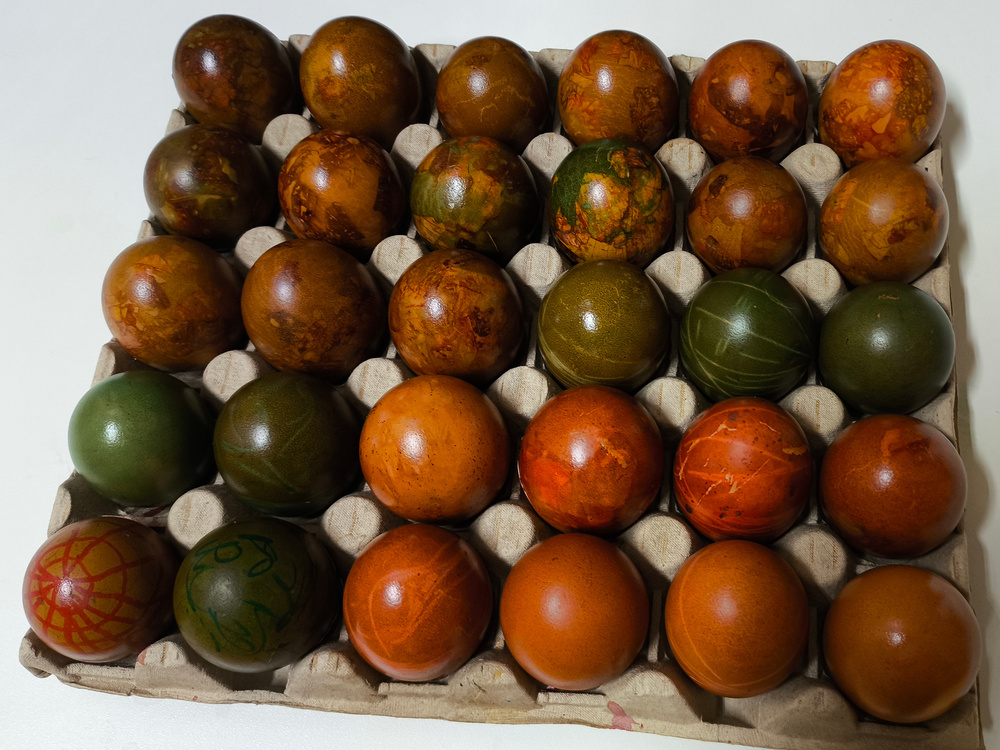
Painting eggs the old-fashioned way.
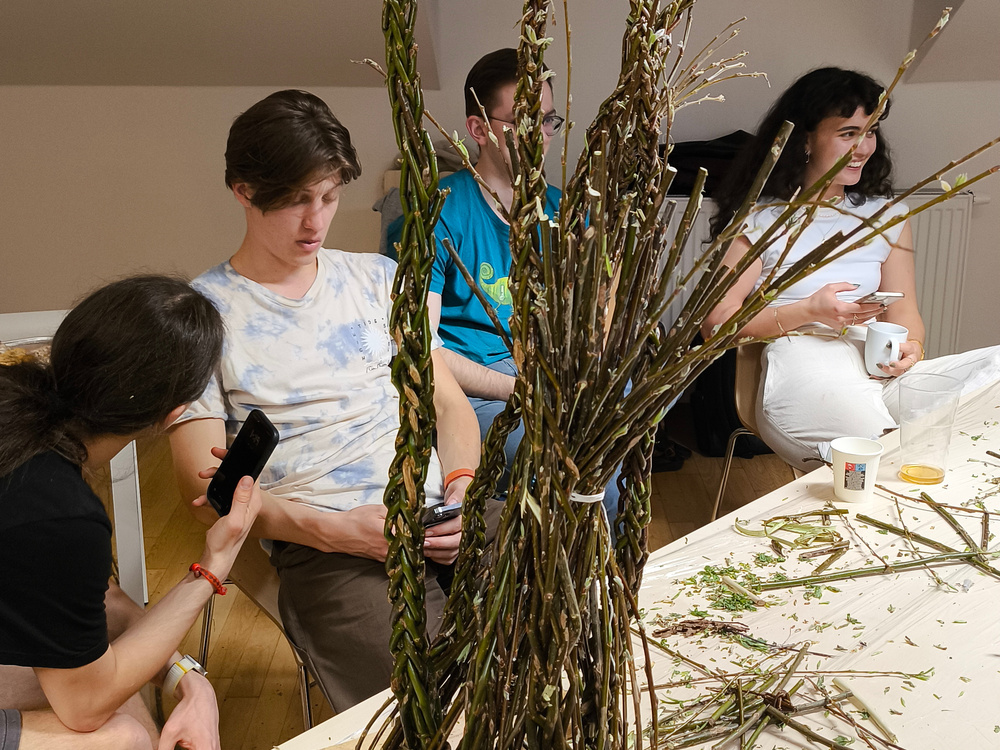
Making traditional Czech Easter willow whips.
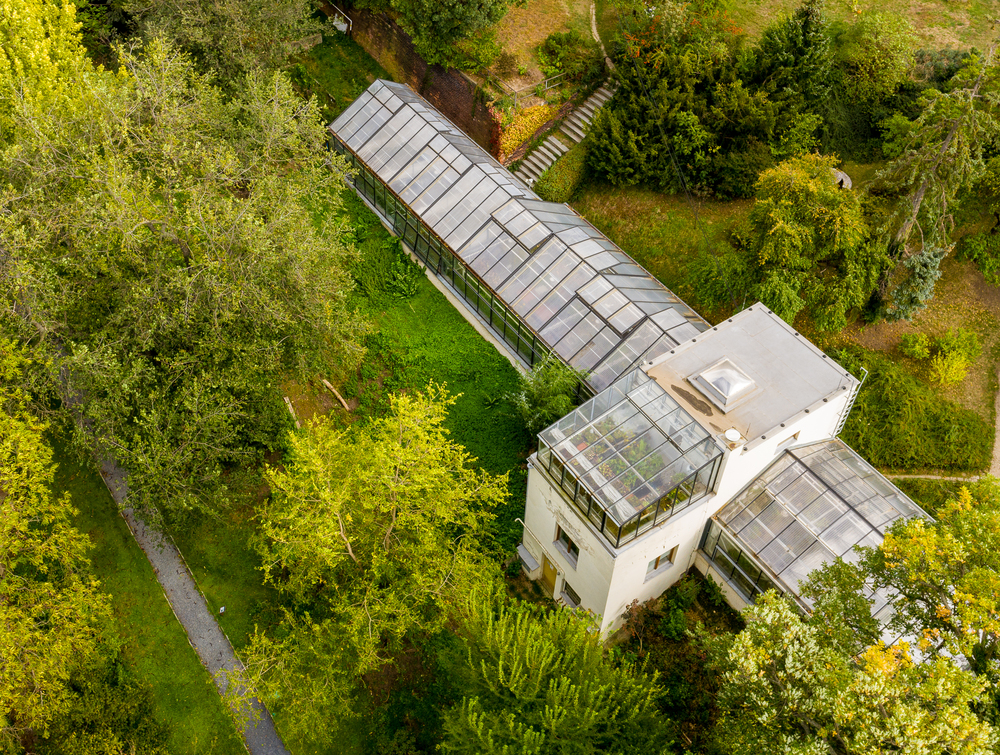
Our venue for exploring natural sciences.
Past Events
Christmas Gathering (10 Dec 2024)

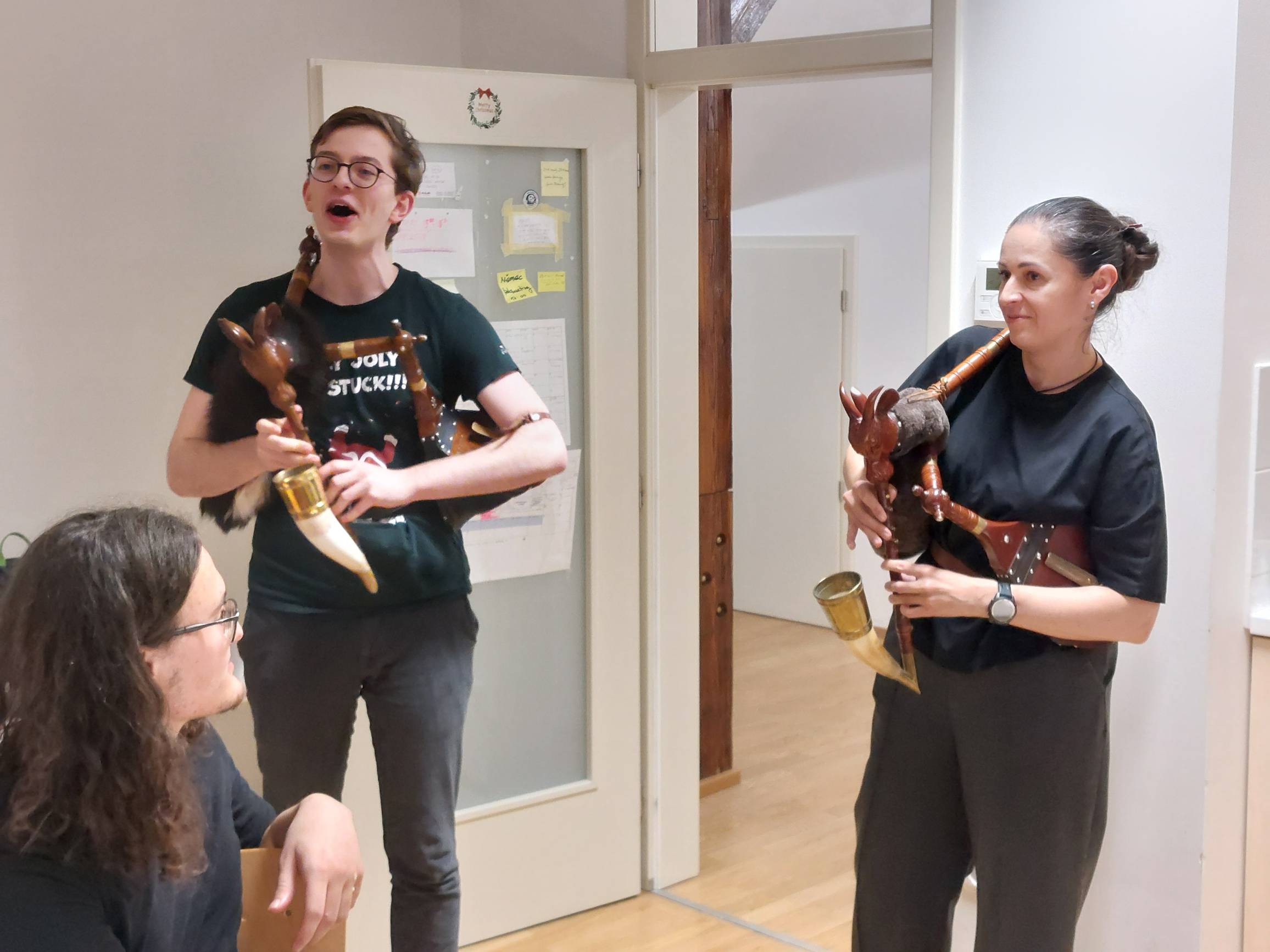
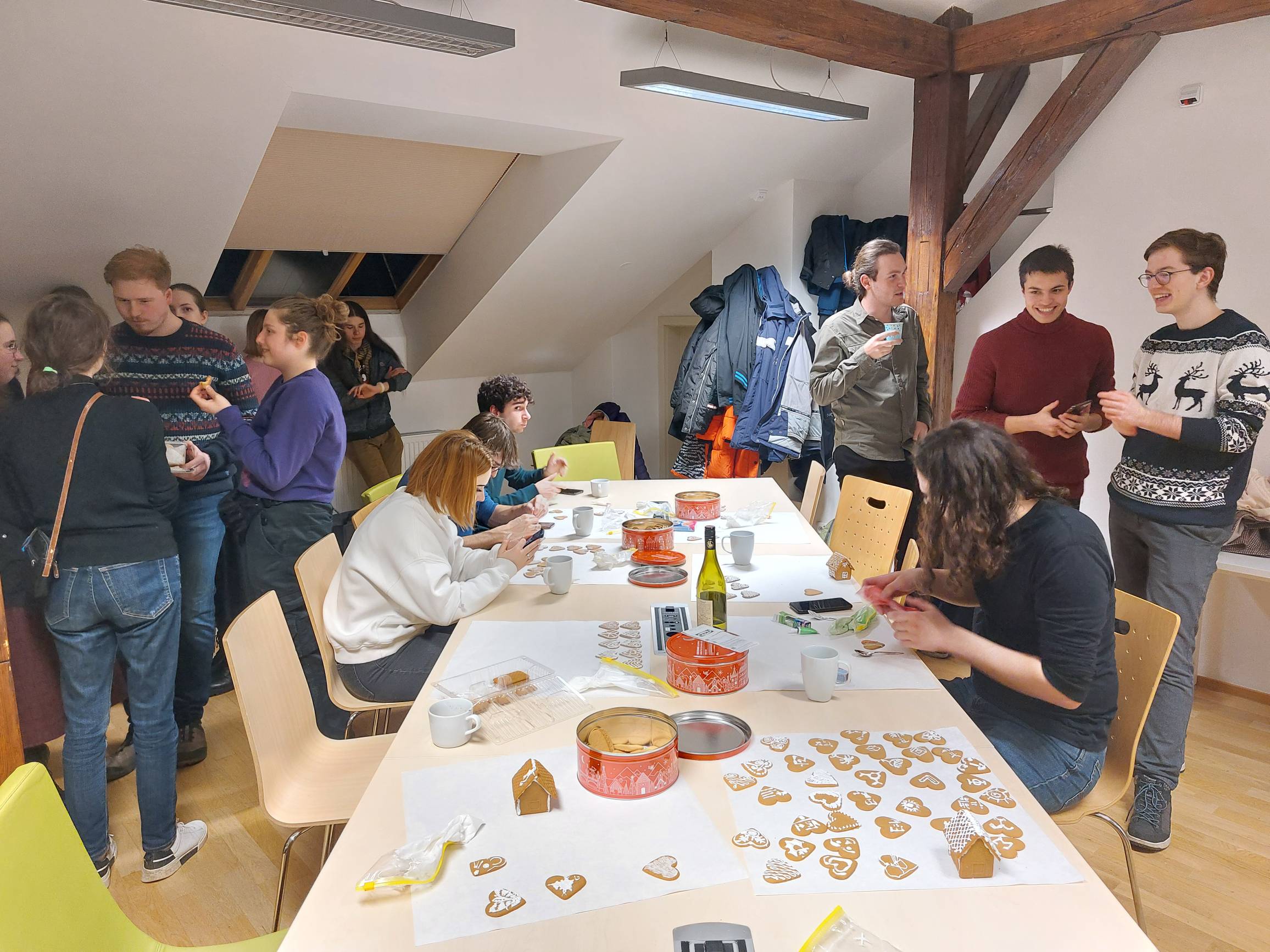

Gingerbread Village: A Creative Touch by Students

Bagpipes at the Science Christmas Party

Gingerbread Production in Action
Trilobites trip (9 Nov 2024)
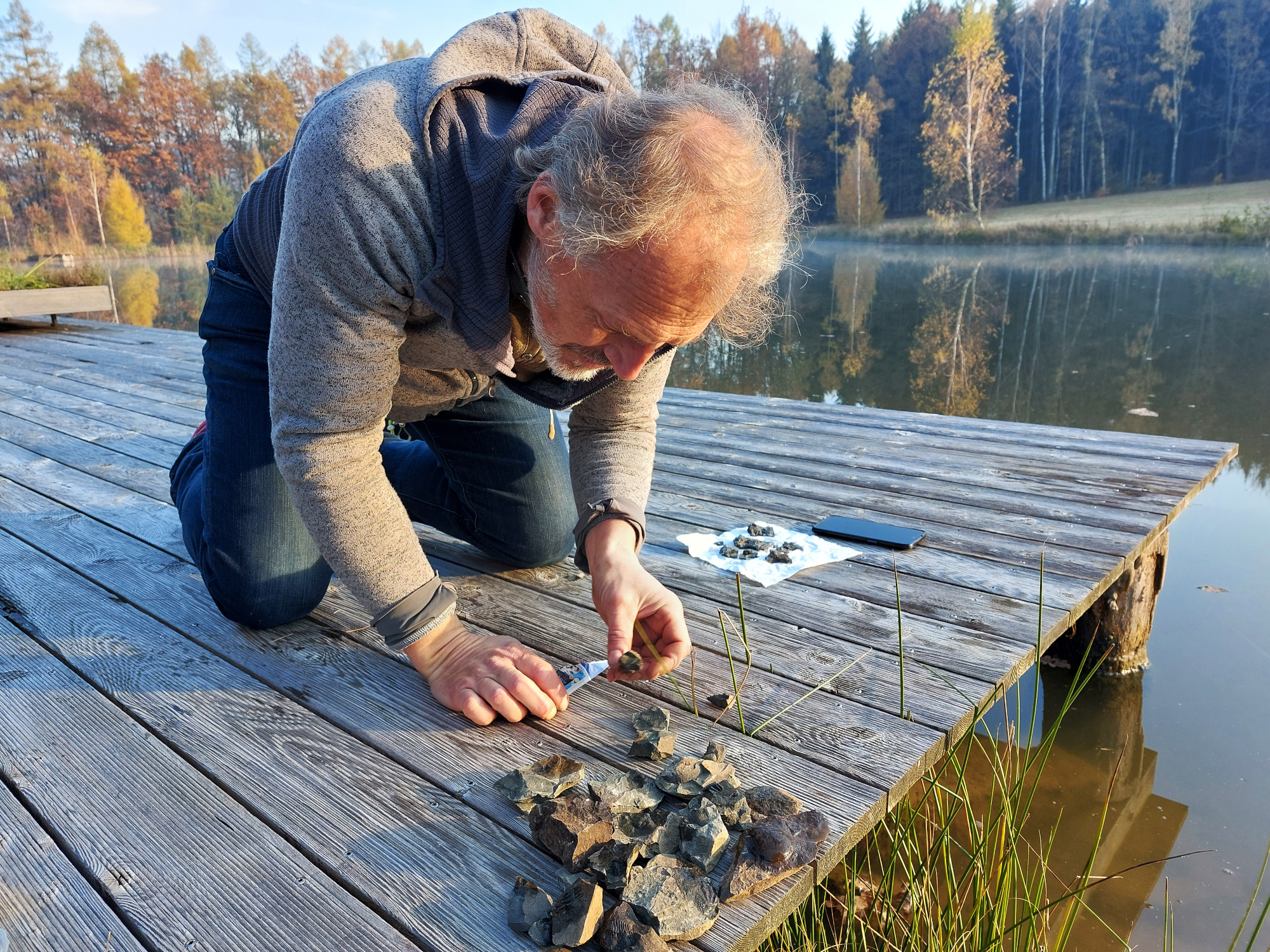
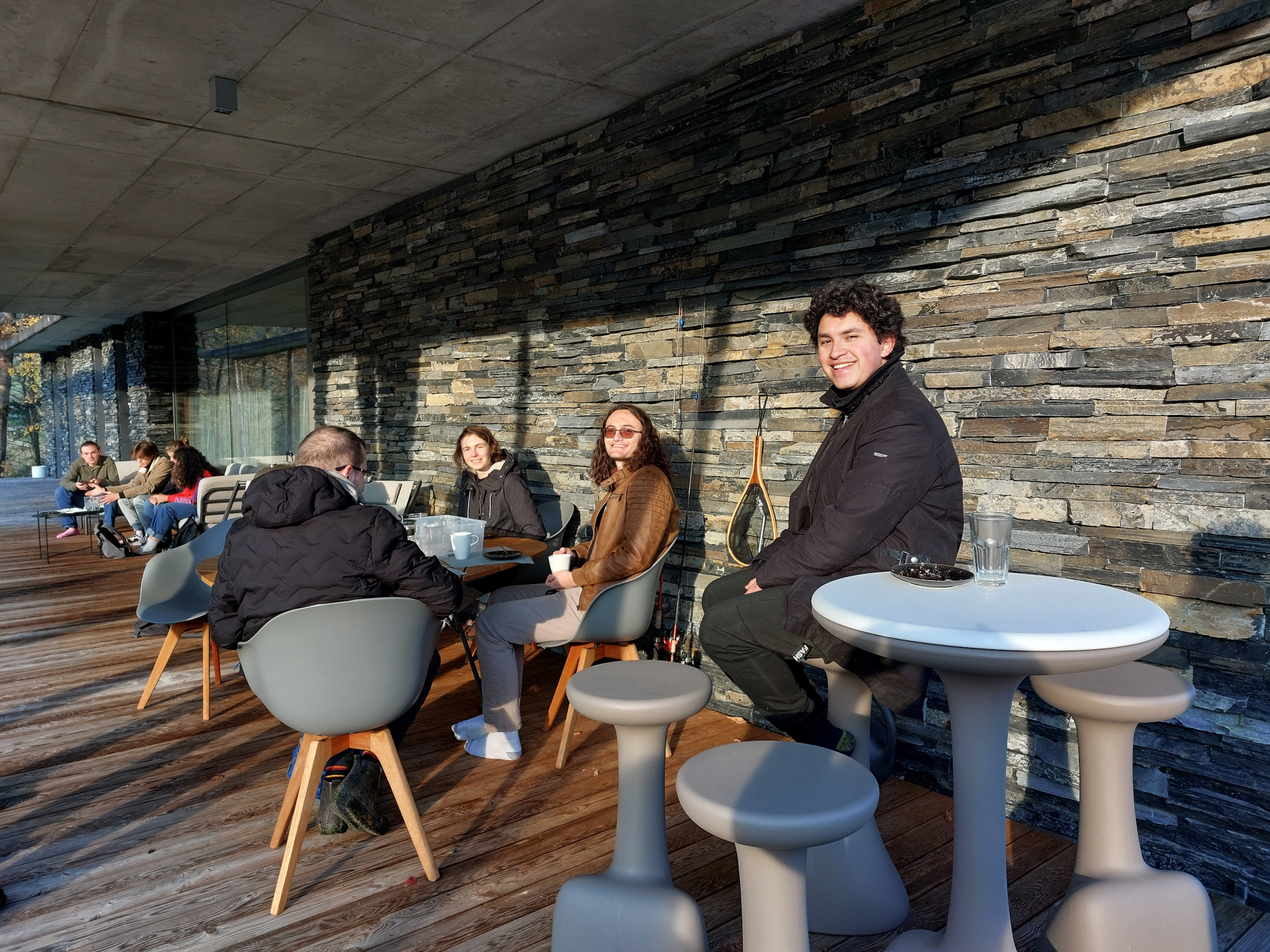
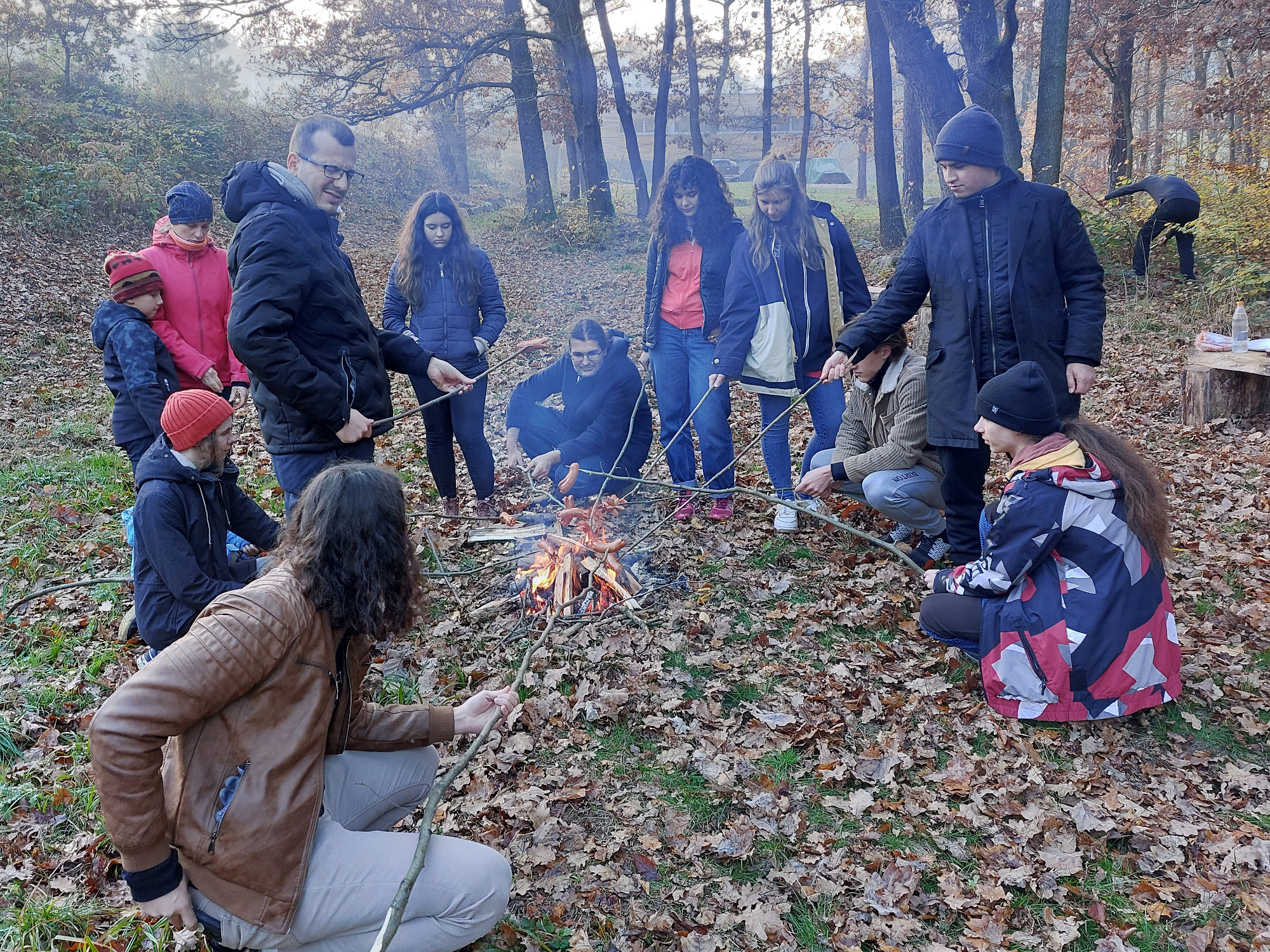

To keep or not to keep?

Cozy shelter in woods.

Fantastic snack on a fantastic place. Thank you Adam and your parents!
The Pumpkin party 2.0 (5 Nov 2024)
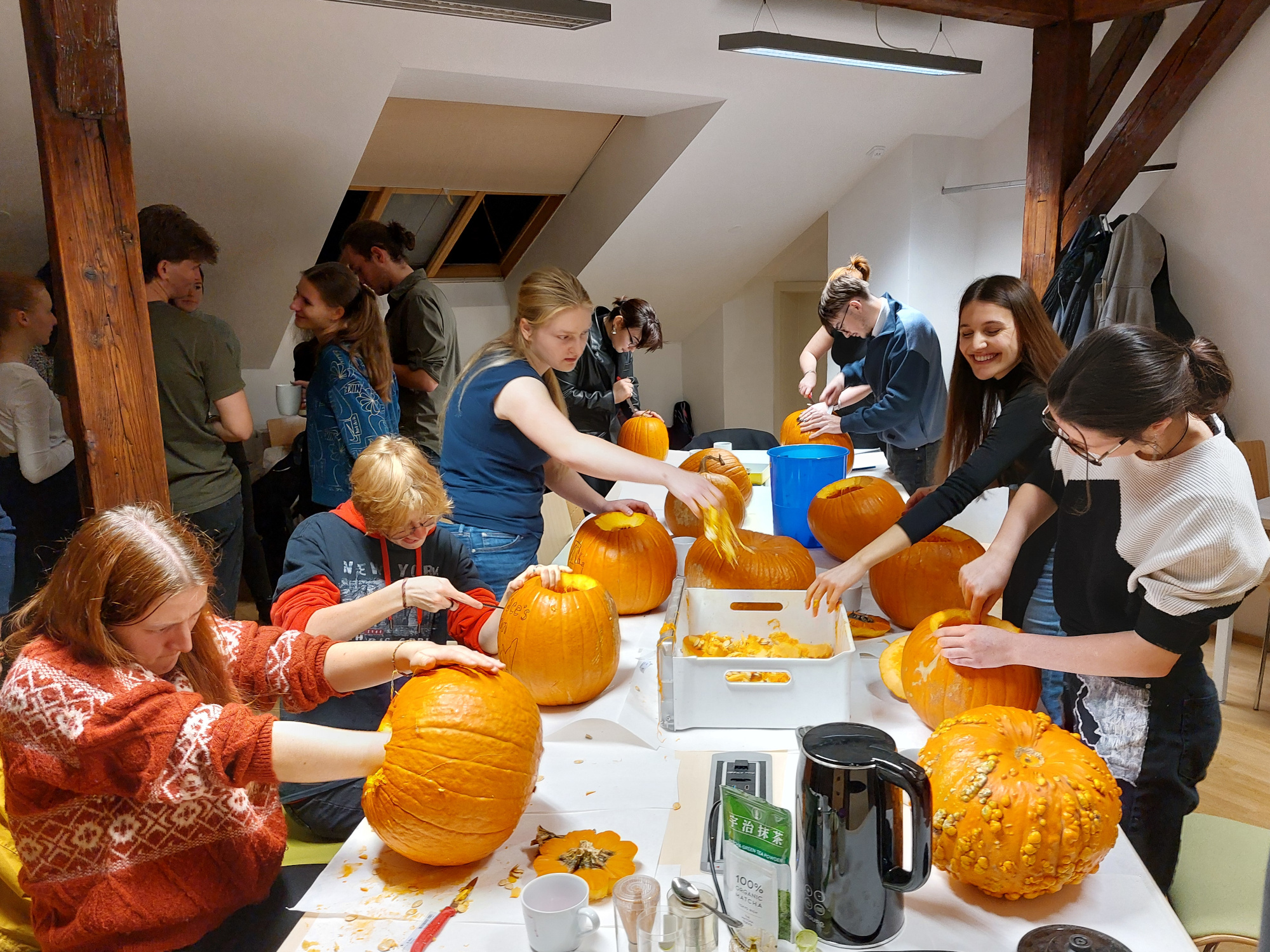
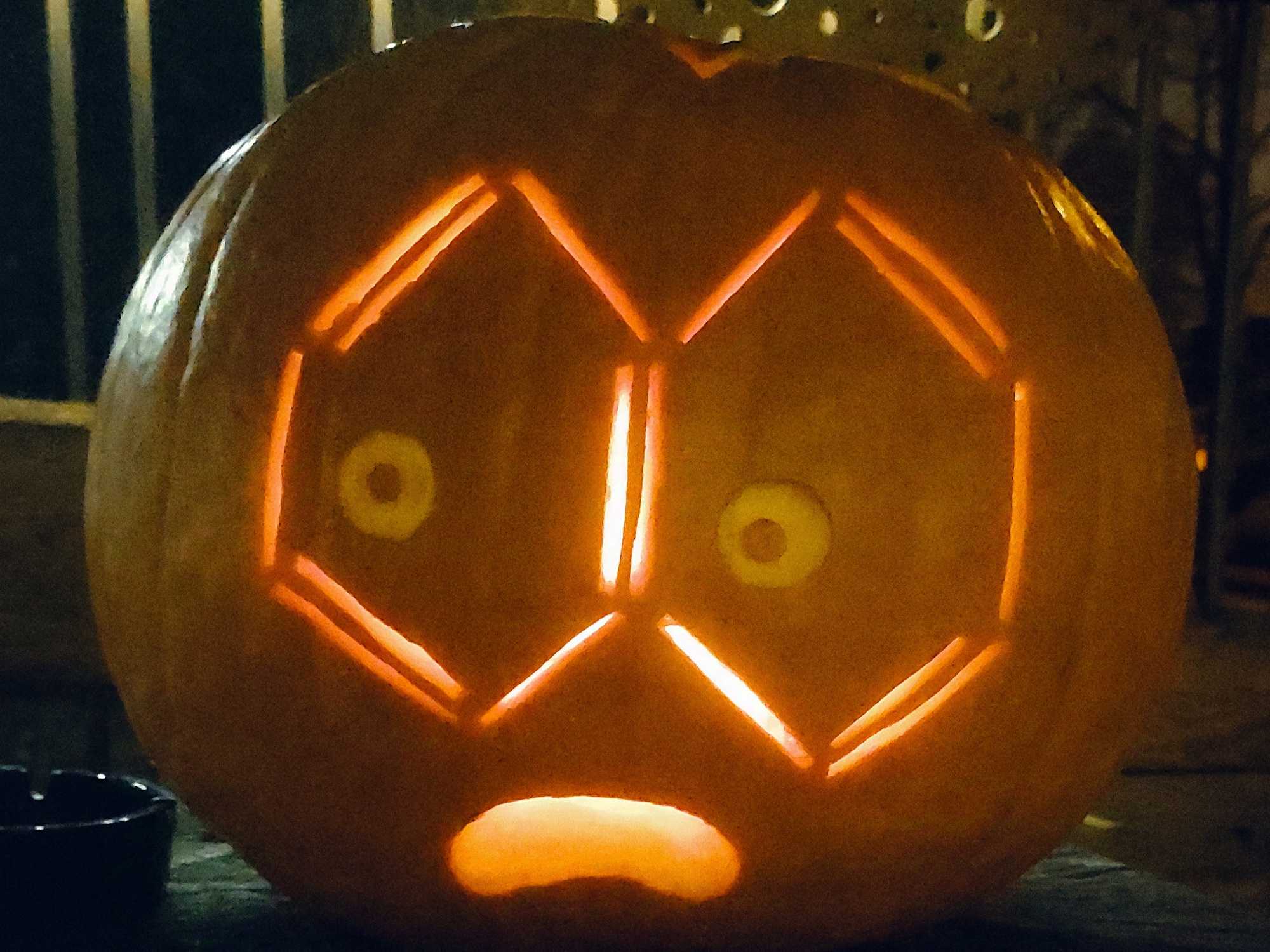


Let the dissection begin.

Napthalene pumpkin.

Rat on the Moon.
The Conference (8 Nov 2024)
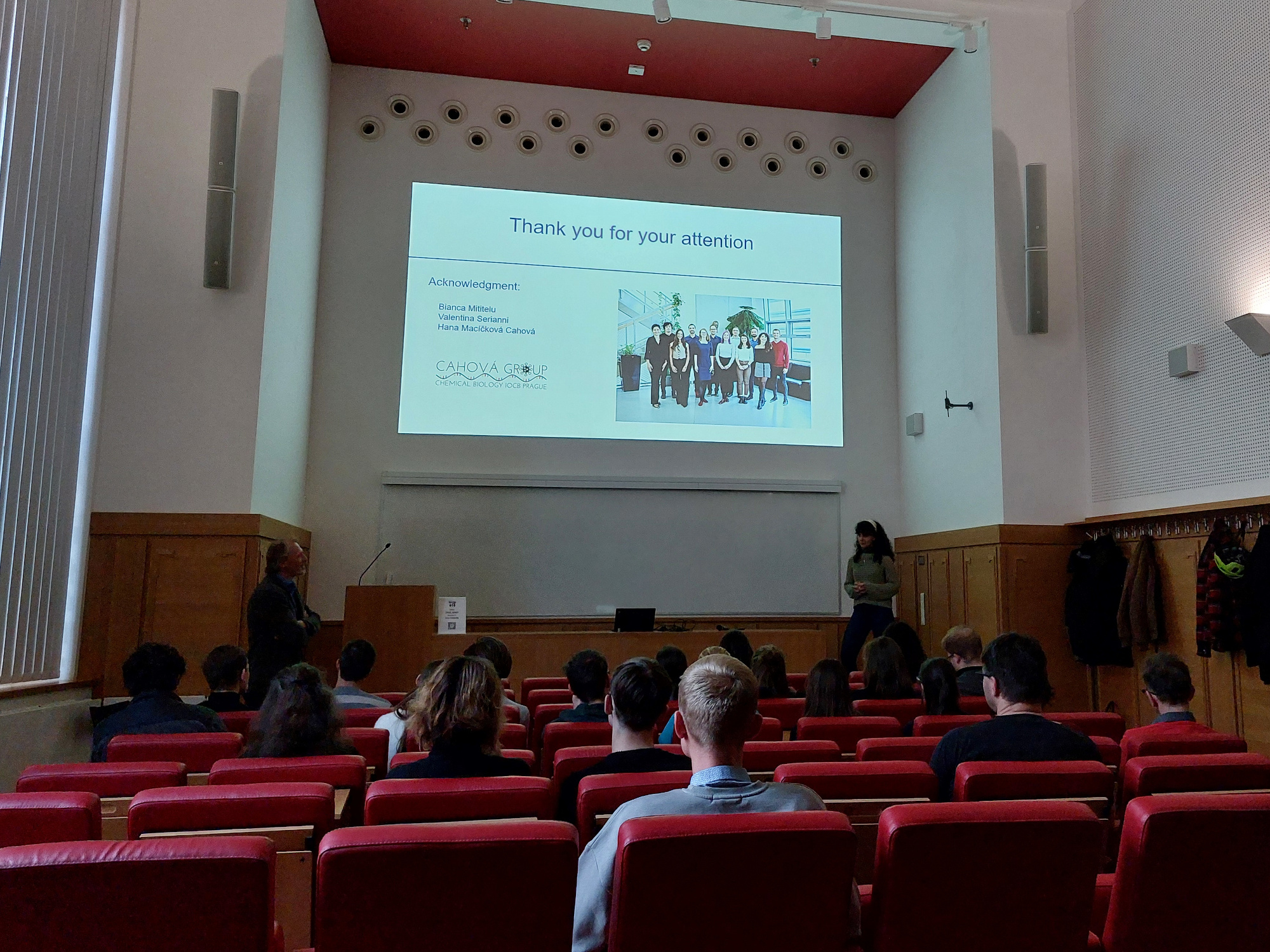
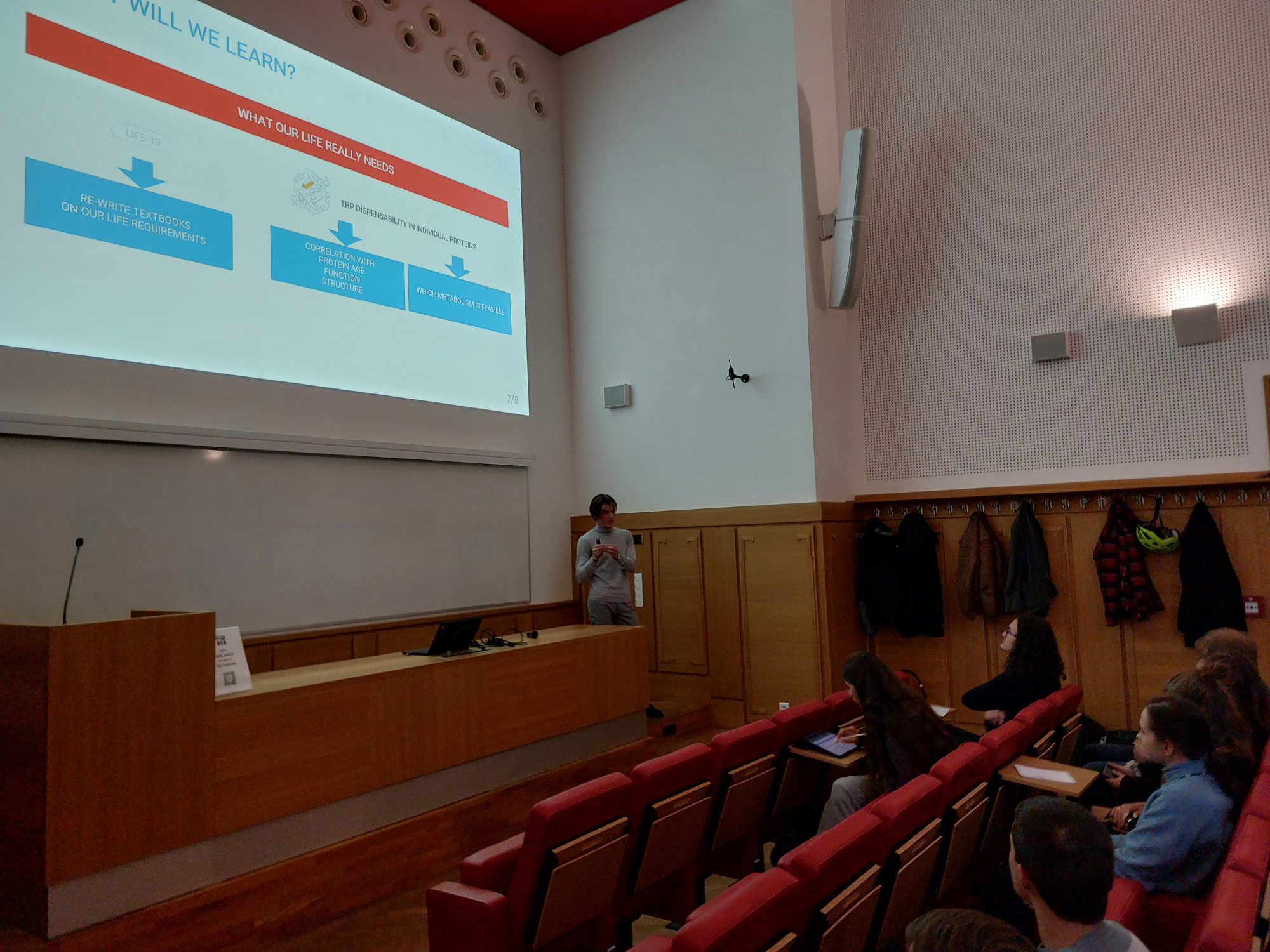
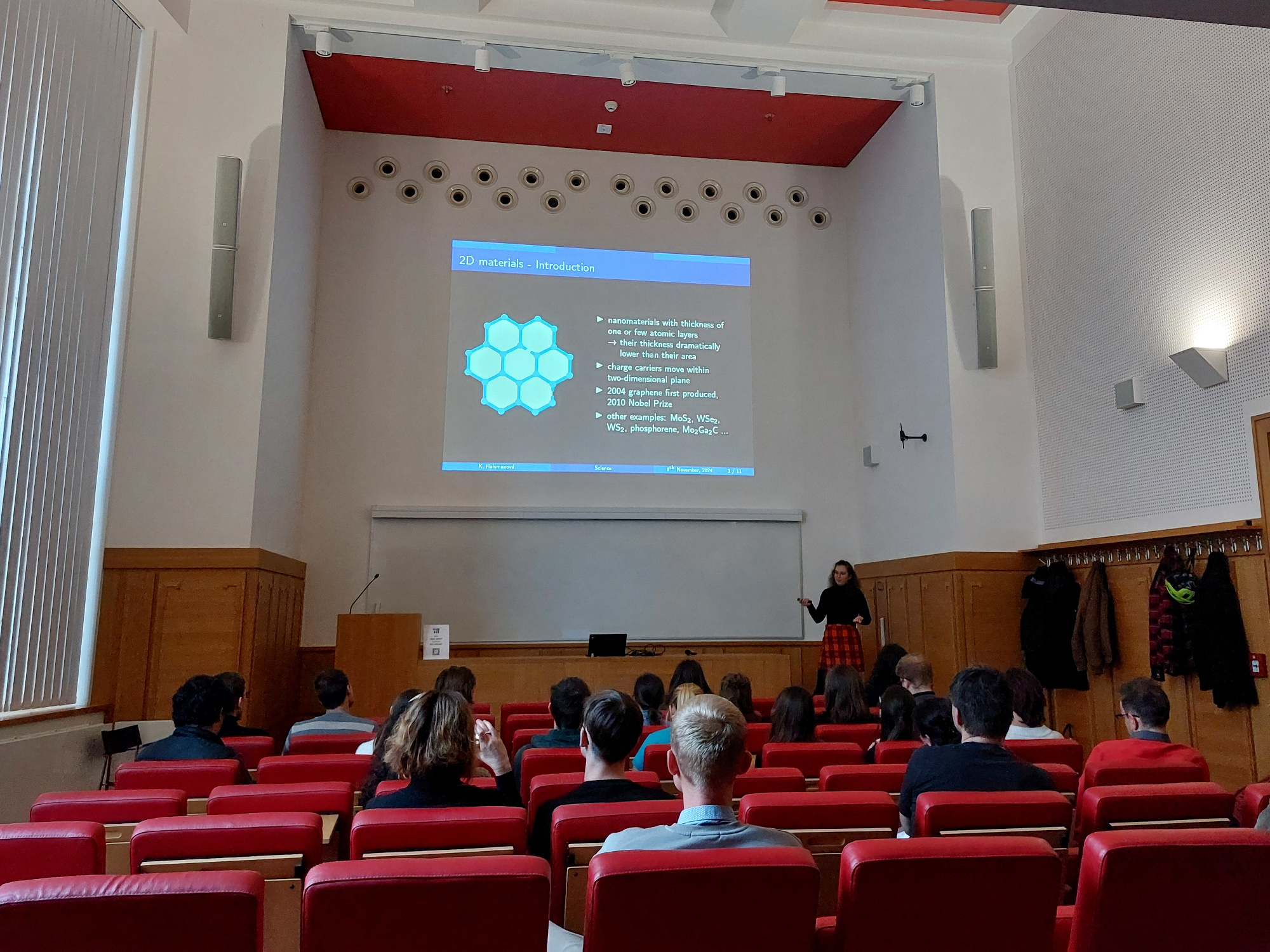

RNA here, there, everywhere!

Is LIFE-19 possible?

Nun komm den Graphen Himmel.
The Easter (27 Mar 2024)




Easter Greetings from Professor Černý and the Egg Decorating Team.

Easter Egg Painting Fun with Students and Teachers!

Happy Easter! May the palm branches symbolize victory and renewal.
Charles University Open Doors Day (19 Jan 2024)




The meeting in front of the famous periodic table at the Chemistry section

Presentation of study programs

Open doors at the Chemistry section
StudyScience Christmass meeting (20 Dec 2023)




Gingerbread cookies collection

Gingerbread cookies manufacture

Mildly dangerous drinks in chemical glassware
StudyScience PumpUpkin Party (30 Nov 2023)




The pumpkins

the Sodium Potassium PUMPkin

the Shrödinger Pumpkin - Quantkin
Extra-curriculum activities
interesting scientific 🔗 lectures in Prague
top regular chemical lectures on CUNI in English 🔗 Quo vadis chemie?
biennale open to all Faculty 🔗 Science is beautiful.
chemical experiments 🔗 Chemical tuesdays.
Media
Frequently Asked Questions

General
How does the Science program differ from other programs at Charles University or other Czech universities?
The Science programme provides a sufficiently deep foundation in core science disciplines such as biology, chemistry, physics and mathematics, as well as a very important education in soft skills and programming. Instruction within these disciplines is purposefully linked to provide perspective and broad context in the sciences. Graduates then have a much higher chance of finding employment in study abroad as well as in the commercial sector. The aim is to prepare a new generation of scientists and scientists capable of critical thinking and interdisciplinary overlap, which is lacking in the graduates of other science programmes.
I studied high school in another field (industrial, humanities, etc.). Can I still apply for the Science programme?
Of course. The program is designed for exceptional students with a big-picture view of the natural sciences. Education in other areas can be an advantage, providing a different perspective on the natural sciences that can be shared and shaped with colleagues and Science Program.

Admission
I graduated in a different country than the Czech Republic. How is this handled for the purposes of the entrance exam?
As it is given in the admission requirements, applicants who hold a degree from an international school must provide proof of their education in one of the ways described 🔗 here. Thus, it does not matter in which country the prospective student graduated; the main criterion for admission is a sufficient number of points in the admission procedure (unless the entrance exam is waived).
How will the interview process work?
Three guarantors or their representatives representing (i) biology, (ii) chemistry and (iii) physics and mathematics will be present during the interview. The aim is not to test the candidate's schooling, but to determine whether the candidate has a sufficient grasp of these disciplines and is able to respond promptly to more complex questions. It is therefore not necessary to know the answers to all the questions, but to be able to respond and take one's own position on the question asked. Our aim is to produce capable experts not walking dictionaries.
How does Charles university recognis the foreign diploma?
To have your foreign diploma recognized, please follow the instructions outlined on this page for the nostrification process.
How will the scholarship application process work?
We want the process to be simple and unified from the student's point of view despite there are several different subjects making donations. The student will send an application in the form of a letter (in PDF format) to the e-mail address <info@studyscience.eu> by 1 June. The application must include the student's name, contact details and the reasons for the scholarship request, e.g. excellent study record, achievements related to the field of study, social situation, etc. Necessary annexes can be attached to the application. The applicant will be informed by 1 July whether or not the scholarship has been awarded.
Could you please advise on literature which can help me in preparation for the [entrance] exam?
Admission interview is over a video call. After an introduction, the committee asks several basic questions from Biology, Chemistry and Physics (about 3 per field). The questions are of completely general nature like: "Are viruses alive? Why don't we feel Earth rotation? What is the origin of magnetic force? Is FCH2COOH stronger acid than CH3COOH? Can you spell your name in chemical symbols? How would you start a total synthesis of ethanol from elements? What is the principle of refrigerator? How is genetic information stored?" and aswers lead to a discussion and logical reasoning. The interview serves also as a test of fluent English communication.

Study
How many students do you have and from what countries?
About 15 per year, CZ, SK, USA, MX, CL, RU, UA, IT, GA, GR, TN.
Is it possible to combine fields in bc. project?
Sure, this is encouraged.
What will be my title?
Bachelor of science.
Do I have to pass all three subjects on secondary school?
No, you can catch up later.
In what parts of Prague courses take place?
Mostly campus Albertov and campus Troja.
Are there any practical courses?
Sure, Chemistry Laboratory, Biology Laboratory, Experimental Methods in Physics, regular work in laboratory on bc. projects.
What are the math requirements and to what extent will math be taught?
Mathematics is the queen of the natural sciences and will be given due attention. The level is assumed to be at the high school level, however, a course is deliberately included in the first semester to review high school mathematics and introduce the more advanced parts in a friendly manner.
What are the programming requirements?
Basic knowledge is of course an advantage, but the course will start from the very basics.
Is it possible to take courses in other foreign languages as part of my studies?
Of course, a wide range of foreign language teaching is offered within the University and the two participating faculties, see, e.g. 🔗 here.
Are physical exercises compulsory?
Not compulsory, but possible and recommened to attend various courses or training courses as part of your studies, see, e.g. 🔗 here.
Are trips abroad possible as part of my studies?
Of course, trips, e.g. in the framework of the ERASMUS programme, as well as through participation at conferences and schools are encouraged.
What are the accommodation options for students?
The accommodation facilities offered by the University are listed 🔗 here

Graduate employment
Where are the main jobs for graduates?
The Science programme provides a sufficiently deep foundation in core science disciplines such as biology, chemistry, physics, and mathematics and a critical education in soft skills and programming. Instruction within these disciplines is purposefully linked to provide perspective and broad context in the sciences. Graduates then have a higher chance to proceed the study abroad or find employment in the commercial sector. The aim is to prepare a new generation of scientists and scientists capable of critical thinking and interdisciplinary overlap, which is lacking in the graduates of other science programmes.
What is the connection to the Master's programmes at Charles University?
There is a direct link to all programmes in biology and most programmes in chemistry and physics. For most of them it is not necessary to take an entrance exam.



